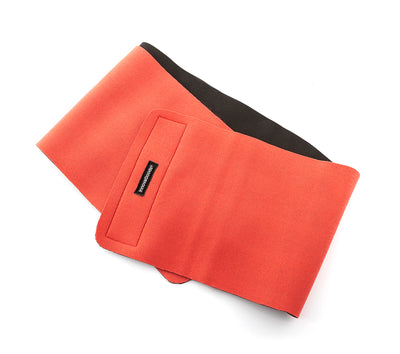Benefits of Zinc Supplements for Your Health and Productivity
When you want to keep a healthy and productive lifestyle, you should pay attention to many things like nutrition, physical activity, and mental health. However, micronutrients also play an essential role in how productive and energetic you will be during the day. And zinc is one of those crucial nutrients that you should always have in your diet!
Today we're going to uncover zinc benefits, answer all your questions regarding where you can find it and how to consume it the right way. So dive in to optimize your zinc consumption and get top perks from it!
Why do you need to take zinc?
In a nutshell, zinc is one of the primal trace minerals and one of the most abundant minerals in your body. Though the body needs zinc in tiny amounts, it has no unique mechanism for storing zinc; that's why you should always have it in your diet. Zinc is present in every cell of your body, supporting chemical reactions and enzymes in your gut. It uses this mineral for repairing cell membranes, wound curing and growing new cells. But that's only a tip of an iceberg in terms of zinc advantages.

Zinc benefits for health and productivity
Besides being a powerful cell defender, zinc assists your body in maintaining various crucial functions and chemical reactions, essential for a productive lifestyle. Let's uncover all its benefits so you can decide whether you need a zinc supplement in the diet.
Zinc could strengthen immunity
The worst nightmare of every busy professional, who is building a successful career, is absenteeism due to frequent illnesses. As for the WHO report, an average person loses almost 16 workdays because of health issues. If you want to use this time to your advantage, you need to take care of your immunity. And zinc is excellent support for your body's defense system.
Zinc in your cells is essential for growing cells, responsible for immune reaction - natural killer cells and neutrophils. So consuming zinc supplements may help your body fight diseases more effectively and build stronger immunity. That way, you’ll have more chances to stay healthy even during seasonal influenza outbreaks.
Wayne State University's study claims that zinc's anti-oxidative property helps your body fight free radicals and minimize inflammation. Meanwhile, zinc can decrease oxidative stress related to chronic and vascular illnesses, aging processes, and immunity disorders. What's more, if you struggle with allergies, the study also says zinc can suppress allergy symptoms.
Zinc is an effective immunity strengthener that may help your body avoid some diseases. Imagine it "covers your back" while you advance up the career ladder. But if the insidious virus has breached your defense, and you begin feeling ill, then it's time for resolute action! According to Mayo Clinic, taking zinc within a day starting from the first signs of cold will help you reduce its symptoms and duration.

Zinc promotes healthy metabolism
There's no active and productive life without a proper metabolism that allows your body to create more energy. More than 300 enzymes that accelerate chemical reactions throughout the body need zinc for normal functioning. Your body also needs this mineral to synthesize proteins, helping to turn food into energy for your daily activities.
In addition, zinc is involved in the production of thyroid hormones, necessary for energy metabolism. Plus, it regulates your appetite — if you aren't willing to eat for a long time, then your body may lack zinc. And since zinc is responsible for maintaining your sense of smell and taste, it helps you enjoy every bite of your meals.
With enough zinc in your body, you can keep your energy high even after the whole day of the rush. So why don’t you try taking zinc supplements in order to get on top of your everyday performance?
Zinc assists in maintaining your heart health
And how does zinc relate to your body's most important organ — the heart? First, zinc may help you lower the risks of getting certain heart disorders (like ischemia or coronary heart disease) by reducing oxidative stress. What's more, a decent amount of zinc helps you decrease the "bad cholesterol" level and blood pressure, preventing heart diseases in the long term.
And if your office work doesn't allow you to be active throughout the day, it may affect your blood circulation and lead to stagnation of blood. It, in turn, leads to constant pains, heaviness in legs and arms, and fatigue. But taking extra zinc will help you avoid these inconveniences by improving blood circulation.
Zinc supports your good vision
Spending most of your time in front of the monitor screen, you should be worried about your vision. Still, by consuming zinc in the form of a supplement, you can lower your chances of age-related vision loss due to macular degeneration. It's possible due to the zinc's potent antioxidant properties and its function in helping Vitamin A produce melanin to protect your eyes.

Zinc regulates your blood sugar
If you're a sweet tooth or just used to grabbing a quick sugary snack when you're busy, your blood sugar level may be above average. It's okay in the early stages, but if you don't pay attention to high blood sugar levels for a long time, it may lead to diabetes. However, by taking zinc supplements, you may prevent this incurable disease.
Zinc acts as an insulin stimulator, activating insulin pathways and regulating its secretion in your body. Research shows that zinc decreases fasting glucose and improves insulin functioning. That's why zinc is among the most potent supplements to prevent diabetes.
Zinc boosts your learning skills and memory
As a powerful cell protector, zinc is also a champion among other supplements to promote your good memory. It regulates communication between brain cells, allowing you to memorize more essential facts and dates for a longer time.
Zinc is present in the hippocampus — your brain part responsible for memories, learning ability, and planning. The high level of this mineral in the body allows your nerve cells to transmit signals faster, thus, boosting your learning skills and thinking speed. So if you're looking for a supplement to improve your brain performance, zinc is here to help!

As you can see, zinc is a beneficial mineral responsible for many processes within your body. Zinc's famous for its powerful immunity-strengthening properties. Moreover, it also maintains your heart health, helps you prevent severe diseases, and shows better results in cognitive tasks. So then, how can you get enough zinc with your diet? First, let’s look at the products rich in this beneficial mineral.
Zinc helps maintain hair health and texture
Zinc regulates hair follicle cell division and provides skin regeneration. This mineral also stimulates the synthesis of collagen and keratin, the main proteins of the hair shaft. Along with other minerals (copper, selenium, iron, calcium), it affects the thickness, elasticity, and growth rate of hair. With the development of zinc deficiency, changes in the hair's condition show that you need to increase your intake of this nutrient.
The best sources of zinc
It will take you some efforts to get enough zinc with your meals even when having a balanced diet. And suppose you've always busy and reach for quick unhealthy snacks instead of a filling meal. In that case, you may even face zinc deficiency, dangerous for your health and productivity. Then it will be helpful for you to know which foods will give you the most considerable zinc doses.
One of the best sources of zinc is seafood. For example, only one oyster contains 5,5 mg, which equals 50% of the recommended daily zinc intake. In addition, 100 grams or 3,5 oz of king crab includes 7 mg of zinc, while one red lobster supplies your body with 4,7 mg. You can add them to your menu once or twice per week to replenish zinc reserves in the body.

You can also find plenty of zinc in meat. Poultry and red meat are among the top sources of zinc: 3 oz (85 grams) of beef roast contains 7mg or 47% of the daily recommended norm, while 3 oz of lean lamb meat includes 6,2 mg or 41% of the daily zinc norm. Although, if you're a vegetarian or vegan, you still can get enough zinc with food.
Among plant-based products rich in zinc, you can find beans and lentils - boil them or eat canned ones. Besides, nuts and seeds like chia, cashew nuts, walnuts, and pumpkin seeds also contain massive doses of zinc. For instance, one oz (28 grams) of pumpkin seeds has 2 mg of zinc or 20% of its daily norm. So add them to your salads or desserts to optimize zinc intake and feel all the benefits it gives.
Other natural sources of zinc are:
- oats
- mushrooms
- kale
- quinoa
- milk and yogurt
- breakfast cereals
- hummus
- whole-grain bread.
But if you don't have time to watch your diet and precisely choose foods for your meals, then reach for zinc supplements. Besides, as our body can’t store this mineral, it’d be a great idea to top up your zinc level by dietary supplements.
How to consume zinc supplements most effectively?
According to Mayo Clinic, the daily recommended zinc dose for women is 12 mg with 15 mg for men. You can take zinc supplements in capsules, syrups, and tablets. However, there are different zinc types, and you should know them before purchasing one for yourself.

Zinc acetate is widely known as a cold treatment — it usually comes in tablets. Still, this supplement isn't the best to fight deficiencies because it only gives you a quick immunity boost.
If you want to get those zinc supplements that your body will absorb better, you need a zinc picolinate supplement. It helps replenish zinc reserves in your body and getting zinc benefits in the long term. This type of supplement often comes in mixes with amino acids for better absorbency.
However, you can find more zinc supplements that come together with amino acids. As for zinc gluconate, it comes in nasal sprays, and zinc glycinate is a remedy to reduce pain and swelling. You can also choose zinc citrate for better supplement absorbency — you can get it in capsules.
To get more benefits from zinc supplementation, take it 2 hours before your meal. If such a regimen leads to stomach upset, then consume zinc with meals, but don't forget to inform your physician about it. Besides, don't take this mineral with coffee since it decreases zinc absorption by 50%. So it's better to consume zinc supplements with a glass of plain water instead.
Cautions and side-effects when taking zinc
Despite all the benefits it gives you, zinc is still a trace mineral, so your body can absorb only tiny amounts of it. That's why you should be careful with the dosage and possible side effects when taking zinc. Overdosing by zinc may appear as dangerous as its deficiency.

So the main symptoms of overdosing by zinc supplements are:
- nausea
- difficult breathing
- lethargy
- vomiting and diarrhea
- gastritis.
If you face one of these symptoms while taking zinc supplements, take a pause and consult your physician regarding further instructions.
Wrapping up
Definitely, zinc is one of the must-have minerals in your body, responsible for numerous chemical and metabolic reactions. It's helpful for your daily stamina since zinc helps your body transform food into energy. Plus (what is especially important for busy professionals), zinc is a great productivity booster. It enables you to enhance your learning skills and strengthen your memory capacity by speeding up the communication between neurons.
You can get zinc with various foods like lean meat, legumes, and seafood. In addition, you can take zinc as a supplement to improve your immunity and fight deficiency. Then watch how additional doses of this mineral change the way you think and work for the better. And don't forget to stay tuned for more insights on health and productivity!
Resources:
- Zinc In Diet (2021)
- 7 Potential Benefits Of Zinc Supplements (2021)
- Zinc Supplements: What To Know If You're Thinking Of Taking Them (2020)
- Absenteeism From Work Due To Illness, Days Per Employee Per Year (2020)
- Zinc In Human Health: Effect Of Zinc On Immune Cells (2008)
- Zinc For Colds: The Final Word? (2020)
- Will Zinc Boost Your Energy? (2020)
- 4 Metabolism-Boosting Supplements (2015)
- Zinc Supply Affects Cardiac Health (2017)
- Effects Of Zinc Supplementation On Serum Lipids: A Systematic Review And Meta-Analysis (2015)
- Antioxidant Vitamins And Zinc Reduce Risk Of Vision Loss From Age-Related Macular Degeneration (2001)
- Is Zinc Good For Vision? (2019)
- Zinc Benefits For Diabetes: May Offer Natural Blood Sugar Control And More (2020)
- Zinc Regulates Communication Between Brain Cells (2011)
- Can Zinc Boost Memory And Learning Abilities? (2020)
- 10 Best Food Sources Of Zinc (2020)
- Zinc Nutrition – Foods High In Zinc (2021)
- Zinc (2020)
- Zinc Supplement (Oral Route, Parenteral Route) (2021)
- The Best Zinc Supplement (2019)
- Taking Zinc Supplements: What Are The Health Benefits? (2019)








